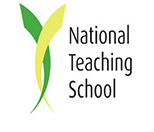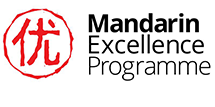Photography
Why study Photography?
A level Photography is a creative course with an emphasis on photography as an art form. The camera will be used as a tool to develop visual and thought processes as well as creative and critical abilities. Such skills are in high demand within the Creative Industries, which according to the Department for Media, Culture & the Arts (DMCA) are a “significant contributor to the UK economy - accounting for 7.9% of GDP, and growing significantly faster.”
The department has excellent facilities:
- a large dark room with 13 enlargers for monochrome work
- a photographic studio area and backdrop
- two suites of Apple iMac computers suitable for intensive image and audio visual editing.
We encourage all forms of experimentation from traditional darkroom printing to video editing and animation. To see work produced by our students, please visit our online gallery at: www.flickr.com/fortismereartdepartment/collections and the department’s instagram: @fortismere_art_photography
WHAT WILL I STUDY?
Students will undergo a programme of study to equip them with the technical skills and control of the photographic medium in order to be able to realise their creative intentions. Critical awareness and appreciation of the work of others will also play a major part in the course.
UNIT 1: Personal Investigation
The coursework element is worth 60% and is divided into skills workshops and independent projects.
YEAR 12
Project 1: Foundation
The Foundation unit consists of a series of tutorials and set tasks that will help students understand how to use the digital camera and SLR camera, covering the basic principles of photography. Students will also learn to develop their 'photographic eye' and improve compositional understanding, before moving onto the first independent project.
Project 2: Structure
Students develop a personal response to the theme.They document the development of ideas in an online portfolio and produce an ambitious final piece or series of pieces.
Project 3: Abstraction
An independent project where students create their own interpretation of the brief set. This project is also a springboard into the main area of study in year 13.
YEAR 13
Project 4: Personal Portfolio
This is divided into two elements:
- Personal Study: A written and illustrated study into an area of Photography.
- Personal Portfolio: A portfolio of practical work based on a brief
UNIT 2: Externally Set Assignment
The exam is worth 40% of the final mark. Students receive a choice of themes in January of year 13. They then have approximately ten weeks to develop a project towards a final outcome. The final piece is created within a 15 hour exam spread across three days.
Students are assessed according to Eduqas’ assessment criteria, which measures the way a student develops, experiments, records and realises their ideas.
HOW WILL I STUDY?
Students will be involved in practical, creative, technical, historical, critical and theoretical activities. Students will be required to work independently and co-operatively, and to be well-organised. Some work will be studio-based. However, a willingness to venture widely in pursuit of photography is an important quality to have on the course.
We expect students to take advantage of the many exhibitions on display in London. We also offer a study visit abroad, run an open-studio after-school session and provide opportunities for gallery and museum visits.
WHAT DO I NEED TO START THE COURSE?
An enthusiasm for the subject and a determination to generate ideas and work beyond the basic course requirements is essential. If you are considering studying both Fine Art and Photography, please be aware that the coursework requirements (60%) of both subjects require a great deal of independent work outside of the classroom and high level of organisational ability.
To join the course, you are required to have a digital camera with manual speed and aperture-priority modes. We recommend the Fuji FinePix range for a reasonable price bracket, whereas the Canon EOS and Nikon D-series create mid-range DSLR cameras with detachable lenses. The department supplies manual SLR Film Cameras for black & white photography, which can be loaned out.




